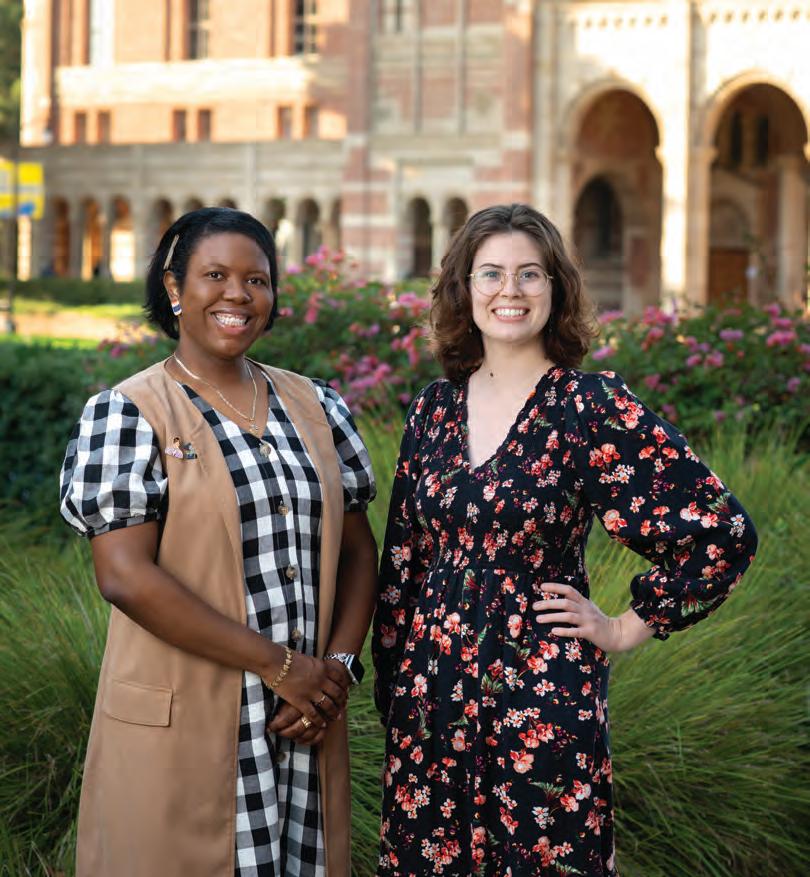
1 minute read
UNITED WE STAND
This Mentor And Mentee Are Making A Difference Using Science
Although the COVID-19 pandemic had the potential to unite us all via our shared, vulnerable humanity, instead, it largely exposed and exacerbated tremendous inequities. According to the Centers for Disease Control and Prevention, when compared to non-Hispanic whites, every other racial and ethnic group in the U.S. had an increased risk of infection, hospitalization or death.
Advertisement
UCLA psychology doctoral candidate Riley Marshall studies the way we talk about these COVID-19 racial health disparities and how they affect vaccination rates, looking to see if there’s a link between health messaging from medical institutions and individual health behaviors. In particular, Marshall, who uses they/them pronouns, is working with their mentor Tiffany Brannon, assistant professor of social psychology at
UCLA, on a multi-study paper examining overlapping peaks of the pandemic and the Black Lives Matter movement.
“Our project examines potential connections between these two largescale events,” says Brannon. “For example, did the rise of anti-racist activism have consequences for the ways people were thinking about COVID? There’s a lot of work that looks at how people are often the most cooperative when they’re with similar others, but COVID is fundamentally a problem across all group lines.”
Using data from multiple states, as well as news reports and Google search behaviors, Brannon and Marshall have found evidence that there is indeed a link between anti-racism engagement and lower vaccine hesitancy.
“It’s really exciting to be on this project, where we’re connecting theory to what we’re studying as well as thinking about what can come next in terms of interventions,” says Marshall, who won a Jenessa Shapiro Graduate Research Award in 2022. “It’s one of the reasons I came to UCLA—researchers like Tiffany think in terms of the big picture.”
Brannon and Marshall clicked instantly due to their shared tenacity when it comes to dismantling stigma and discrimination through science. In fact, the two were recently awarded a racial and social justice grant to combine their joint project with Marshall’s individual research for a deeper dive into the intersection of anti-racism and COVID-19 behavioral outcomes and attitudes. Yet the noble scope and urgency of their work is not always reflected by the reality of how it may be received.
“We need science more than ever to speak to the problems in the world, but the misinformation out there can be deafening,” Brannon says. “Scientists can play a role in actively combating this pushback with productive conversations, and I think it actually improves the science.”
“This project is so deeply aligned with what got me—and Tiffany, too—into science in the first place: trying to address social issues that matter a lot, whether or not we’ve personally experienced them,” Marshall says. “Good science is a long process, but neither one of us would ever give up on it.”










